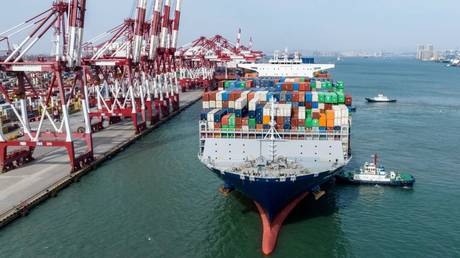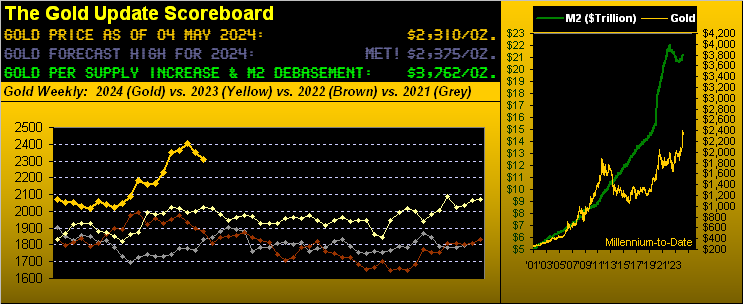Venezuela - Coup Failure Necessitates A New Policy - Bolton The Stache Is Pushing For War
After the failed coup attempt in Venezuela at least some people recognize the reality that its government has significant support. The coups failure necessitates a new policy. Unfortunately John Bolton is the man in charge of it. He is likely to push for a war.
U.S. media, especially cable TV, is clearly working in favor of 'regime change' in Venezuela. They even avoid to call the intended coup a coup.
Many U.S. journalist who regularly write on South America are extremely biased and have no qualms to lie. Consider this by Anthony Faiola and Mariana Zuñiga in today's Washington Post:
A pro-government rally on Wednesday next to Miraflores, the presidential palace, drew about 500 people, far fewer than the multiple rallies of thousands of people supporting Guaidó.

bigger
Now watch this drone clip of the described rally.

bigger
One can also compare the WaPo take to the (similar biased) NYT account which at least gets some facts straight:
Across town in central Caracas, thousands of Mr. Maduro’s supporters dressed in red marched along the main highway toward the presidential palace. Most appeared to be retirees or public sector workers. Many were brought in from across the country by public buses that stretched for miles on the side of the highway.
It was one of the biggest pro-government demonstrations in Caracas in months, underlining the government’s desire to portray strength and tenacity after the failed uprising.
To get a good picture of the situation in Venezuela and the upcoming new policies one has to combine many sources. Some media and reporters are simply much better than others. A few point how embarrassingly Tuesday's coup attempt and the crazy White House plans failed.
Bloomberg writes:
It was a ploy that from its outset felt like a long shot. Before dawn Tuesday, Juan Guaido, flanked by his political mentor Leopoldo Lopez and a handful of soldiers who had broken ranks, issued a message to Venezuela and the world: The time to topple Nicolas Maduro’s authoritarian regime was right now.
...
The whole episode was so bizarre -- with Guaido seemingly lacking the military might to have any chance at all -- that it was hard to understand the day’s events.
The Associated Press' Matt Lee and Ben Fox have a similar fair take:
For the third time this year, the big moment in Venezuela has turned into a bust.
Trump administration officials had expected that Wednesday might turn out to be the beginning of the end for President Nicolas Maduro with senior government figures withdrawing support and the opposition launching a mass uprising with military backing.
Or at least that’s what the administration had been led to believe.
But the promised defections didn’t happen, the military uprising never materialized and Maduro still appeared to be firmly in command of the South American nation. Trump officials were back to complaining about the support Venezuela receives from Cuba and Russia while issuing vague warnings of military action.


The Trump administration and its Venezuelan puppets clearly got snookered by the Maduro government. Senior Venezuelan officials pretended they were ready to hand over power to Guaidó to push him towards some embarrassing action. The Trump gang fell for it (Spanish, machine translation) and the Venezuelan officials surely had a good laugh:
Chavez senior officials negotiating with the opposition the departure of Venezuelan President Nicolás Maduro, have "turned off their cell phones" and do not respond, revealed in an interview with Efe the US envoy for Venezuela, Elliott Abrams.
"I've found that many of them have turned off their cell phones," Abrams acknowledged.
The larger Latin America strategy behind the 'regime change' attempt in Venezuela necessitates an escalation:
The removal of Maduro was supposed to be the precursor of a domino effect that would later tumble the dictatorships in Cuba and Nicaragua.
Current and former officials acknowledge that a failed uprising would cripple the opposition and undermine the administration’s top priority in the hemisphere.
“It’s now or never,” a senior administration official said. “Everyone realizes it both on the U.S. side and the Venezuela side. How ugly this gets remains to be seen. But everyone sees this as the final frontier to bring down Maduro.”
The plan to use economic pressure, loud bluster and a hapless crony to unseat the Venezuelan government can no longer be valid:
“The entire episode should lead to a round of reflection within the opposition and their supporters in the U.S. government regarding how to address this crisis,” [David Smilde, a Tulane University professor and expert on Venezuela,] said. “It is clear the pressure-collapse scenario they have been working with has run its course.”
With the situation on the ground still uncertain, Trump’s top national security aides, including Pompeo, national security adviser John Bolton and acting Defense Secretary Patrick Shanahan, who canceled a trip to Europe to work on Venezuela, huddled at the White House to discuss possible options.
The administration is somewhat split about which direction to take. The neoconservative hawks - Bolton, Pompeo, Abrams and Rubio - are looking for war, while their boss and the Pentagon are against launching one. Trump wants the votes of the millions of Cuba hawks in Florida, but he has no interest in launching a long war. The Pentagon knows that an invasion of Venezuela would lead to another decades long struggle:
Trump has shown little willingness to plunge into Venezuela, according to current and former aides, ...
The president has occasionally mused to others that Bolton wants to get him into wars. Two advisers who have discussed Venezuela with him said Trump often brings up Florida politics, and his golf club in Doral, when talking about the subject. Both said Trump was unlikely to authorize any sort of long-term military action there.
At the same time, however, aides said he has given Bolton wide purview over Venezuela.
Giving Bolton purview over anything is a mistake. He is a vicious and ruthless bureaucrat who knows how to get his way. Bolton is pressing the Pentagon for military options:
As he has pushed for a more aggressive policy, Bolton has angered some within and outside the White House. Even before Tuesday’s events, his staff clashed with Gen. Paul Selva, Dunford’s vice chairman, during a meeting to address the ongoing Venezuelan crisis, according to several officials with knowledge of the exchange.
The soft-spoken Air Force general was giving an update last week on the Pentagon’s view and making the case against a risky escalation by the United States when Bolton aides, including Mauricio Claver-Carone, Western Hemisphere director at the National Security Council, repeatedly interrupted and asked for military options, according to the officials.
...
A senior administration official said Bolton’s staff was dissatisfied with Selva, who they felt had not presented sufficient military options for Venezuela as expected. Selva, according to people familiar with the interaction, believed the confrontational style of Bolton’s staff was out of line.
Claver-Carone is part of the anti-Cuban gang within the Trump administration.
It is not the first time that Bolton and the Pentagon clash. A recent New Yorker portrait of Bolton, sympathetic to him and falling for some of his spin, reports of a similar situation in April 2018 after the fake 'chemical attack' in Syria :
[W]hen Bolton asked the Pentagon for options, Mattis gave only one, a limited strike with cruise missiles. Bolton was furious, a person familiar with his thinking told me: “Mattis is an obstructionist. He seemed to forget that it was the President who was elected.” After some modifications, Trump authorized the attack. But Bolton wanted more; he believed that the U.S. needed a more enduring military presence in Syria.

The portrait includes other takes that are relevant here. Bolton has a history of disregarding or exaggerating intelligence when the reality contradicts his spin:
In May, 2002, he spoke at the Heritage Foundation, where he accused the Cuban government of developing an ambitious biological-weapons program and of collaborating with such pariah states as Libya and Iran. As he prepared to give similar testimony to Congress, Christian Westermann, an analyst at the State Department’s internal intelligence bureau, told him that the bureau’s information did not support such a view. (Westermann declined to comment for this story.) Bolton, according to several officials, threatened to fire him. “He got very red in the face and shaking his finger at me, and explained to me that I was acting way beyond my position for someone who worked for him,” Westermann later testified. “I told him I didn’t work for him.” Bolton began excluding Westermann’s supervisor from daily briefings and, after an unsuccessful attempt to fire him, tried to transfer him to another office.
...
In 2003, as he prepared testimony for an appearance before Congress, he described Syria’s efforts to produce nuclear and biological weapons as an urgent threat—an assessment that intelligence agencies thought was exaggerated. A bitter internal debate ensued; the accusations endangered the Syrian government’s cooperation in hunting suspected terrorists. “We were getting some of our best, if not our best, intelligence on Al Qaeda from Damascus,” Lawrence Wilkerson told me. Richard Armitage, the Deputy Secretary of State, took Bolton aside and “told him to shut up,” Wilkerson said.
...
Tony Blinken, who [in 2005] was the staff director of the Senate Foreign Relations Committee, told me that the members began to reconsider as they examined Bolton’s work in the State Department. “We saw a pattern of Mr. Bolton trying to manipulate intelligence to justify his views,” Blinken told me. “If it had happened once, maybe. But it came up multiple times, and always it was the same underlying issue: he would stake out a position, and then, if the intelligence didn’t support it, he would try to exaggerate the intelligence and marginalize the officials who had produced it.”

Now Bolton is again selling kool aid:
[H]e argued that Venezuela was dangerous, because it was allowing Russia to gain a foothold in the region. He said that there were twenty thousand Cubans in Venezuela who served as “surrogates for the Russians.” There were also at least a hundred Russian soldiers and mercenaries on the ground, helping Maduro stay in power. “To get the Russians out, you have to change the regime,” he said.
What Bolton says about the Cubans contradicts the intelligence he receives:
One area where the White House has been at odds with the C.I.A. is the agency’s assessment of Cuban participation and support for the Maduro government.
Mr. Bolton and Mr. Pompeo have consistently criticized Cuba for its support for the Venezuelan government. But the C.I.A. has concluded that Cuba is far less involved and its support has been far less important than senior officials in the administration believe, according to a former official.
Unfortunately Bolton is now in a position where he has much control over Trump:
Aides have found that detailed briefings provoke [Trump's] impatience; graphics and bullet points work better, and relatable photographs better still. “Bolton gets to the point very fast,” a senior Administration official told me. “He’s very brief, and the President appreciates that.” Groombridge, the former aide, said, “John is thinking, To the extent I can modify or mollify the President’s actions, I will. He is truly a patriot. But I wonder how he goes into work every day, because deep in his heart he believes the President is a moron.”
...
With Trump’s national-security team depleted—no permanent Secretary of Defense, no Secretary of Homeland Security, no Ambassador to the United Nations—Bolton would have extraordinary latitude in a crisis. “John understands that you have to get the elected leader the approval of the audience that matters,” Hundt said. “As long as Trump’s base is still applauding, then Bolton can do whatever he wants.”
For Bolton, it is ultimately a question of sovereignty. “The Monroe Doctrine is alive and well,” he said. “It’s our hemisphere.” The doctrine, he noted, was a prohibition against outside powers interceding in Latin America. “That doesn’t mean armed force,” he said. “That’s the Roosevelt Corollary. I haven’t invoked that—yet.” But, he argued, as he has innumerable times in the past thirty years, “all options are on the table.”

The long abandoned Theodore Roosevelt Corollary was an addition to the equally abandoned Monroe Doctrine:
Roosevelt stated that in keeping with the Monroe Doctrine, the United States was justified in exercising "international police power" to put an end to chronic unrest or wrongdoing in the Western Hemisphere. While the Monroe Doctrine had sought to prevent European intervention, the Roosevelt Corollary was used to justify US intervention throughout the hemisphere.
It seems clear that John Bolton, the Stache as Pat Lang christened him, will wage war on Venezuela if he sees no other way to get the Chavistas out of the way and its oil under U.S. control.

Trump already recognizes that Bolton is pushing him into that direction. Tuesday's failed coup episode hopefully taught him that the plans, promises and claims Bolton makes, are prone to fail and to lead to embarrassment.
The American people do not want another war. All Latin-American countries are against launching one. There will be resistance in both parties against waging war. Unlike Joe Bidensome Democrats are - at least for now - against an intervention:
Those options should not include the U.S. military, said Rep. Eliot Engel, a New York Democrat who is chairman of the House Foreign Affairs Committee and was briefed by Pompeo and Bolton on the situation.
Engel, who recently visited Venezuelan refugees on the Colombia border and believes Maduro should go, said Congress has too often gone along with military adventures abroad. “I think the days when the United States can intervene and send in the Marines are over and should be over,” he said.
Engel is not alone:
New Jersey Sen. Bob Menendez, the senior Democrat of the Senate Foreign Relations Committee, urged caution and said events Tuesday suggested the desired outcome might not be achievable in the short term. He warned military intervention could be counterproductive, an opinion shared by regional allies.
“It would be a huge mistake for the Trump administration to miscalculate and undermine this burgeoning democratic movement with a military intervention involving U.S. troops.”
Trump's best option is to simply put the issue aside. There are enough other issues he can bluster about. But he must also order his aides, and the CIA, to leave Venezuela alone. He might otherwise wake up and be told that Venezuela sunk the Maine or that Maduro attacked U.S. war ships in the Caribbean Sea. Bolton will have no qualms about creating such a stunt.
He is a dangerous man and should be fired.



